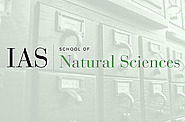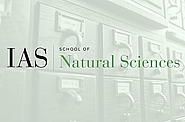Events and Activities
Explore current and upcoming events and activities happening at the Institute for Advanced Study.
Apr
30
2024
Princeton University Astrophysical Sciences 2024 Spitzer Lecturer
Finding the most distant galaxies in the universe with JWST
Brant Robertson
11:00am|Peyton Hall, Peyton Auditorium
Apr
30
2024
Institute for Advanced Study / Princeton University Bahcall Lunch
12:30pm|Lewis Library, Princeton University
Apr
30
2024
Apr
30
2024
Princeton University Dark Cosmos Seminar
Probing Inflation from Antarctica: Improving Cosmology Constraints with the Cosmic Microwave Background and Line Intensity Mapping
Jessica Avva Zebrowski
4:00pm|Jadwin Hall, Joe Henry Room
May
01
2024
IAS Physics Group Meeting
Tidal Effects of Compact Objects from Theory to Observation
Zihan Zhou
11:00am|Bloomberg Lecture Hall (IAS)
May
01
2024
Princeton University Astrophysical Sciences 2024 Spitzer Lecturer
The Growing Legacy of JWST for Extragalactic Science
Brant Robertson
11:00am|Peyton Hall, Peyton Auditorium
May
02
2024
IAS Quantum Aspects of Black Holes Group Meeting
Relative State-Counting for Semiclassical Black Holes
11:00am|Bloomberg Hall Physics Library
May
02
2024
Institute for Advanced Study Astrophysics Seminar
Testing Galaxy Formation Models with Large-scale Surveys of the Milky Way Stellar Halo
Emily Cunningham
11:00am|Bloomberg Lecture Hall
May
02
2024
What is...?
What are rational and Du Bois singularities?
Wanchun Shen
1:00pm|Simonyi 101 and Remote Access


